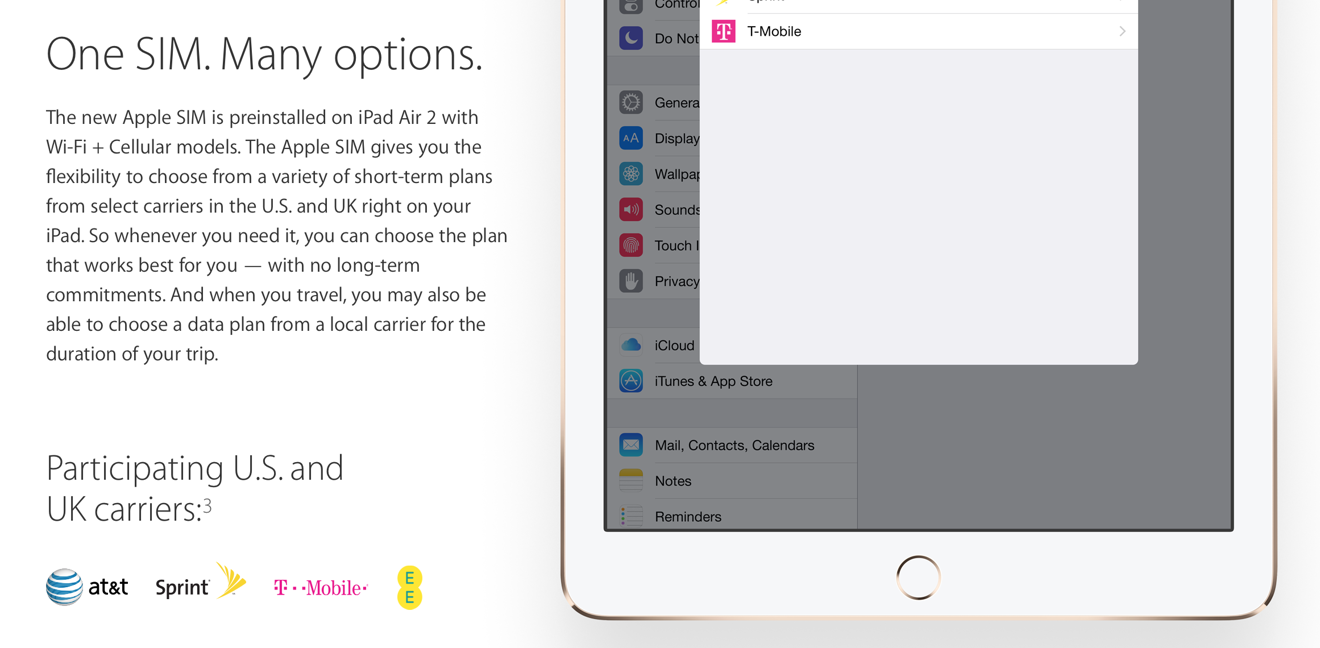In a rare move, Apple on Tuesday responded to a questionable rumor, outright denying that it's planning to start its own mobile virtual operator network and become a wireless provider, much like MetroPCS or Boost Mobile.
In a statement to CNBC, Apple said it has not discussed becoming an MVNO, and has no plans to do so. The statement squashes a rumor that claimed Apple was looking to piggyback on established wireless networks, buying extra capacity from carriers like AT&T and Verizon.
That rumor, started on Monday by Business Insider, seemed suspect from the start: iPhone users are among the most profitable subscribers for wireless carriers, and for companies like AT&T and Verizon to sell excess capacity to Apple would see them essentially forfeiting those customers.
MVNOs, which include MetroPCS and Boost Mobile in the U.S., lease their voice and data service from major carriers. That excess capacity is sold to smaller companies at a discounted rate, who then sell budget mobile plans to customers.
iPhone users are among the most profitable subscribers for wireless carriers, and for companies like AT&T and Verizon to sell excess capacity to Apple would see them essentially forfeiting those customers.
In 2012, CEO Tim Cook said Apple doesn't need to "own the pipe," referring to investment in carrier networks. He noted that Apple is focused on delivering quality devices and would rather leave network operations to its partners.
AppleInsider's own sources said earlier this year that the company is considering shipping its anticipated "iPhone 6s" with the Apple SIM card, which could make it easier for customers to select wireless plans. But that too would likely create concern amongst carriers around the world.
The Apple SIM launched last year, but it is limited to the iPad Air 2 with cellular connection. That alone was enough to upset Verizon, which refused to support the Apple SIM. As a result, Verizon customers in the U.S. must buy an LTE iPad from Apple, and then obtain a SIM card separately from Verizon.
Prior to the launch of the first iPhone, Apple co-founder Steve Jobs reportedly considered creating a proprietary wireless network, based on unlicensed Wi-Fi spectrum, which would've allowed the the company to completely dodge deals with existing carriers. Patent filings show that around the same time the company was exploring the idea of a phone that would jump between multiple carriers on a distinct roaming network.
 Roger Fingas
Roger Fingas







-m.jpg)






 Charles Martin
Charles Martin
 Christine McKee
Christine McKee
 Wesley Hilliard
Wesley Hilliard
 Malcolm Owen
Malcolm Owen
 Andrew Orr
Andrew Orr
 William Gallagher
William Gallagher
 Sponsored Content
Sponsored Content







76 Comments
I'd rather be sending my money to Apple Wireless than AT&T. Oh, well.
I think squashing this rumor shows that the cellular companies must have expressed some concerns. It is very much in the best interests of apple and the cellular carriers to maintain good relations with each other. Both have made a lot of money off of the iPhone. If Apple ever goes the MVNO route (or something similar), it will have to be handled very carefully.
[quote name="Blastdoor" url="/t/187474/apple-denies-rumor-that-it-is-looking-to-launch-its-own-cellular-service#post_2756541"]I think squashing this rumor shows that the cellular companies must have expressed some concerns. It is very much in the best interests of apple and the cellular carriers to maintain good relations with each other. Both have made a lot of money off of the iPhone. If Apple ever goes the MVNO route (or something similar), it will have to be handled very carefully. [/quote] Google's move into wireless probably helped to feed this rumor about Apple. http://time.com/3831727/google-fi-wireless/
Katie really has left the building.
....
Apple does not need propaganda to be successful. But they need to stop the negative propaganda. if it means playing a little dirty so be it. I think that's the only gripe I have with Tim Cook. The dude is too nice sometimes and too pricipaled. Some times you need to get your hands dirty.
I seem to recall rumors/reports of a prior Apple CEO who would call up the Journalist and cuss them out (at a minimum).